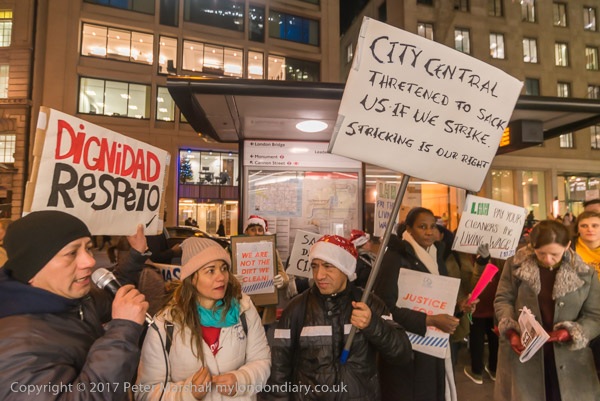
Most of the protests by cleaners and other low-paid workers I’ve photographed have eventually led to success, though sometimes it has been a long and difficult struggle. One is now coming to an end after I first photographed them around 8 years ago, and I think it was then in its second year. Fortunately most are resolved rather faster.
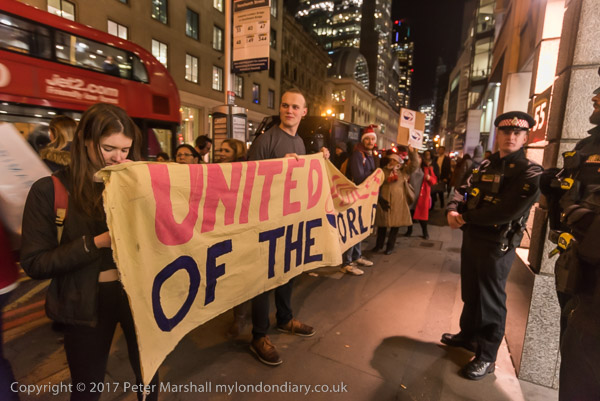
Cleaners, like those at the City offices of Lee Hecht Harrison are almost always not employed by the people whose offices they clean or by the owners of the building, but by cleaning contractors who put in bids for the work. And since the lowest bid wins the contract, the company that pays its cleaners least, overworks them most and awards them the worst conditions of service – and sometimes on zero hours contracts – will be the winner. The cleaners of course lose.
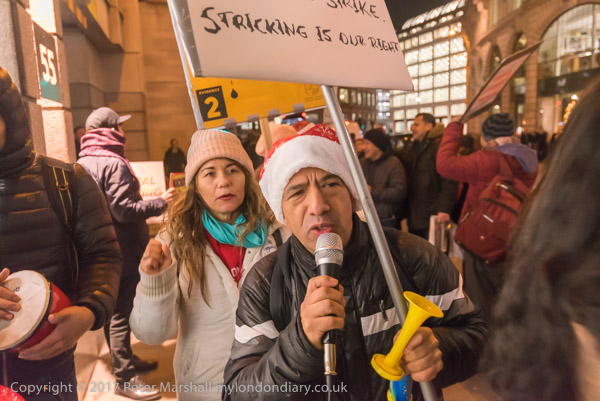
I arrived late at the protest outside Lee Hecht Harrison as I’d been photographing another protest, part of the long-drawn out campaign by workers at Picturehouse cinemas to get the London Living Wage. That campaign by the union BECTU which is now a part of the larger union Prospect. Although the Picturehouse strikers have held a number of protests at half a dozen cinemas around London, the support they get from their union seems rather low key – and at Hackney there was a union official who appeared to be dampening down the protest, worried about the trade union laws (and I think confusing a protest with a picket, on which there are strict limitations.) But the UVW (who have supported various Picturehouse protests) are considerably less constrained, which makes their protests rather more effective.
There was a very different atmosphere on the crowded pavement on Gracechurch St, and it was far easier to take good pictures of the protest by the United Voices of the World which the cleaners belong to. The main problem was the crowding, not helped by their being a bus stop and shelter where the protest was taking place, as well as a constant stream of workers on their way home making their way through the protesters.
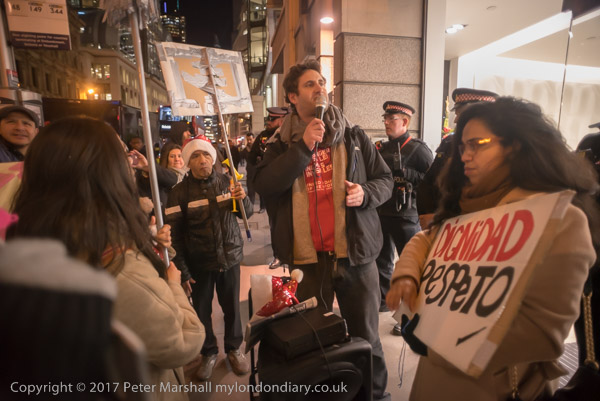
There was quite a lot of light in parts of the area, but mainly coming from the windows of the building in front of which the protest was taking place, with the faces of the protesters often in deep shadow. So while I didn’t use flash, I did quite often need to use the LED light to fill in these shadows.
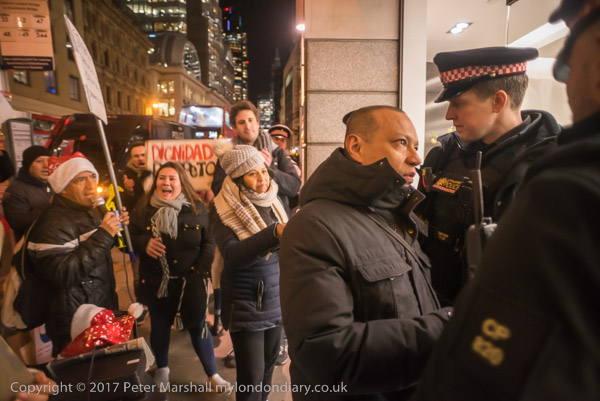
I left the protest as it was coming to an end after an hour when the four cleaners went in to start their shift. As usual they are not employed by Lee Hecht Harrison but by a cleaning contractor, who had refused to talk with the UVW about the claim for a living wage, and had threatened the cleaners with the sack if they took strike action.
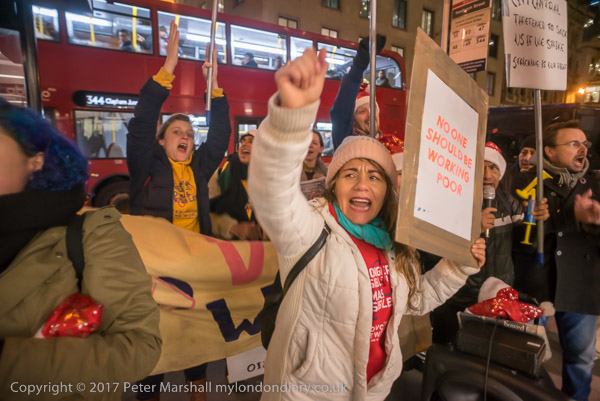
The noisy and very public protest obviously made LHH think about the problem, and I suspect they put considerable pressure on the cleaning contractor to come to a settlement with the UVW. The next protest planned outside the offices was cancelled at short notice when a satisfactory settlement was reached.
Companies like LHH – and Picturehouse – are making huge profits. Paying workers a living wage would hardly be noticeable on their balance sheets, and it is hard to know why they don’t do so without having to be pressured into it by union action. Plenty of companies have realised that it is only fair that those who work there get a living wage and some have done so without any prompting. The London Living Wage has been backed by all three London Mayors, though it would be good to see the current mayor, Labour’s Sadiq Khan, being considerably more proactive in the matter.
City cleaners strike at LHH for Living Wage
Star Wars Strike Picket Picturehouse